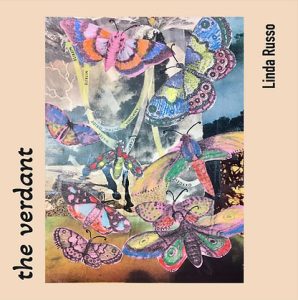Alaska Quarterly Review – Fall/Winter 2011
Volume 28 Numbers 3 & 4
Fall & Winter 2011
Biannual
Julie J. Nichols
I believe (but I might be convinced otherwise) that my favorite piece in this issue of the Alaska Quarterly Review is Charles Wyatt’s “An Accidental Dictionary”—a listing of strange, delicious, and mostly obsolete words taken from three late-twentieth-century specialty word-books. “Bomolluck: . . . not a thing in the night, but what you fear in the night. It can sit on your chest.” “Kist: a basket for the baby Moses or Noah’s ark or Queequeg’s coffin, or the cup of the sea, or the stinging stars pursuing . . . and the heavens see only fog, neither rising nor falling. Tuned. All attention. Will.” “Gardyloo: . . . there is no truth in truth and I have lost my cats.” To word lovers like me, these changeling glomerations of sound are glorious, and Wyatt’s explanations are grand spills of imagery. I can’t resist the temptation to use them to talk about the rest of the issue.
I believe (but I might be convinced otherwise) that my favorite piece in this issue of the Alaska Quarterly Review is Charles Wyatt’s “An Accidental Dictionary”—a listing of strange, delicious, and mostly obsolete words taken from three late-twentieth-century specialty word-books. “Bomolluck: . . . not a thing in the night, but what you fear in the night. It can sit on your chest.” “Kist: a basket for the baby Moses or Noah’s ark or Queequeg’s coffin, or the cup of the sea, or the stinging stars pursuing . . . and the heavens see only fog, neither rising nor falling. Tuned. All attention. Will.” “Gardyloo: . . . there is no truth in truth and I have lost my cats.” To word lovers like me, these changeling glomerations of sound are glorious, and Wyatt’s explanations are grand spills of imagery. I can’t resist the temptation to use them to talk about the rest of the issue.
For example, Andrew Peery’s “Dead Girls” is complex, the way all good fiction is—there’s more than one story going on here, they unfold as we go, we are made progressively more curious and concerned for these characters called “Claire,” “Steve,” “the girl,” and “the cat” (who is female)—how are they related? What will happen to either girl, or all three (cat included)? Claire is a doctor, pregnant by another doctor (not Steve), who has initiated Steve into the use of drugs-for-sanity-on-the-floor; Steve is the resident in charge of “the girl.” The drugs aren’t the issue, here, although they’re an issue. Instead, relationships are. The cat is a beautifully rendered symbol for both the human girls and the panicky, heartachey relationships doctors have with those they treat. This story embodies Wyatt’s gardyloo: Steve is not sure where the truth is, and at one point, significantly, he loses his cat.
“If You Help the Same People Too Often,” by J. Malcolm Garcia, goes avering, its characters, clients of a Family Services agency, as Wyatt would define the term, like “loseneers (escaped captives of the Turks), iuweeliers (specialize in fake gems), swijgers . . . the bird that crashes into window glass and then dies or does not.” The tone of Garcia’s story is wonderful—disillusioned, disappointed, full of pained integrity. The tone of “The Widow’s Grievance,” by Mary Kuryla, is also pitch-perfect: the widow is a crack shot, confessing to and at the same time accusing her husband and neighbors of passion, murder, mayhem—Wyatt’s gapesnest. Kuryla could vie with Wyatt for my “favorite” category.
But nobody’s competing here, really. As we know, the pleasure of any excellent literary magazine is that it offers one admirable morsel after another (“baragouin: the astonishing white bread”), and in the case of this issue of AQR, ten short stories, eight stunning works of nonfiction, and poetry by twenty-eight poets.
I have been talking about the fiction, but Wes Hempel’s “The Canceled Invitation (Notes on Griffith Park)” is Wyatt’s lib: “first, a charm, then to castrate, then to suckle, then to sleep […] an odd journey for a quarter note of a word, the worst part of any tune whistled in the night.” This essay about the strange, and in some ways awful journey of discovering oneself among itinerant gays in Los Angeles charms, informs, and dismays with its honesty. It will knock you over. Other essays about shoplifting (“Pocketing” by Peggy Shinner), fuel wastage (“350 Pounds” by Marybeth Holleman), and mothers (“Mother’s Hands” by David Singyke and “Growing Up Among Skeletons and Radios” by Adriana Páramo), are all singular, like the stories Wyatt describes under mithe: “they exist whole cloth, they crawl out of the ground after the hardest winter and make soft lights from the ends of weeds. They launch and signal from the night.”
Then there’s the poetry. Greg Vargo’s “Alternative Etiologies of the Common Cold” is a smart, splendid take on those “causes” we try so hard to conquer (communication, weather, susceptibility). Other flawless poems offer new eyes with which to perceive illness: “Terminal Illness Through the Wrong End of a Spyglass” by Anna George Meek and “Echocardiogram” by Meredith Davies Hadaway. There is also Sherman Alexie (“Sasquatch Goes All Darwin on Your Ass”), Kathleen Spivack (“Words for ‘Water’”), David Wagoner (“Pulling Up Stakes” and “Puddle”), and other well-known poets; possibly my favorite is Margaret B. Ingraham’s “Of Moment,” in which a relationship is metaphorized in the migration of birds: “their coming once more by memory—theirs and ours.”
Over all these fine works I buccinate: “blow the trumpet, puff the cheeks like cherubim, ring the ringing in your ears, shatter glass, spin the river moils.” This is a terrific issue of a terrific literary magazine.
[www.uaa.alaska.edu/aqr]




